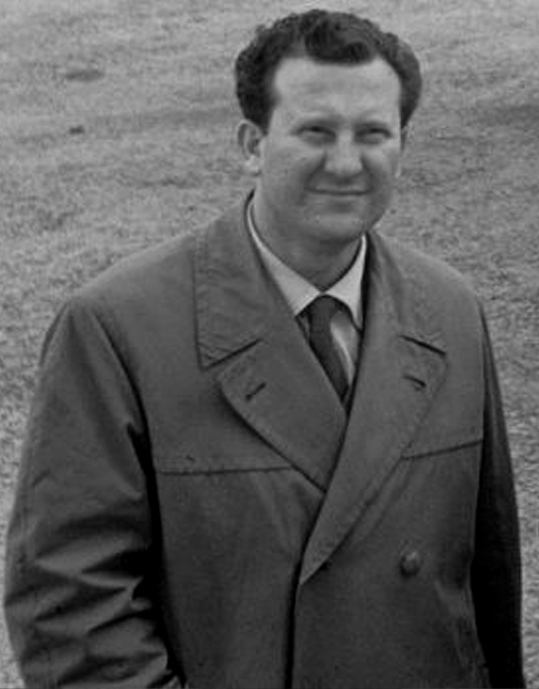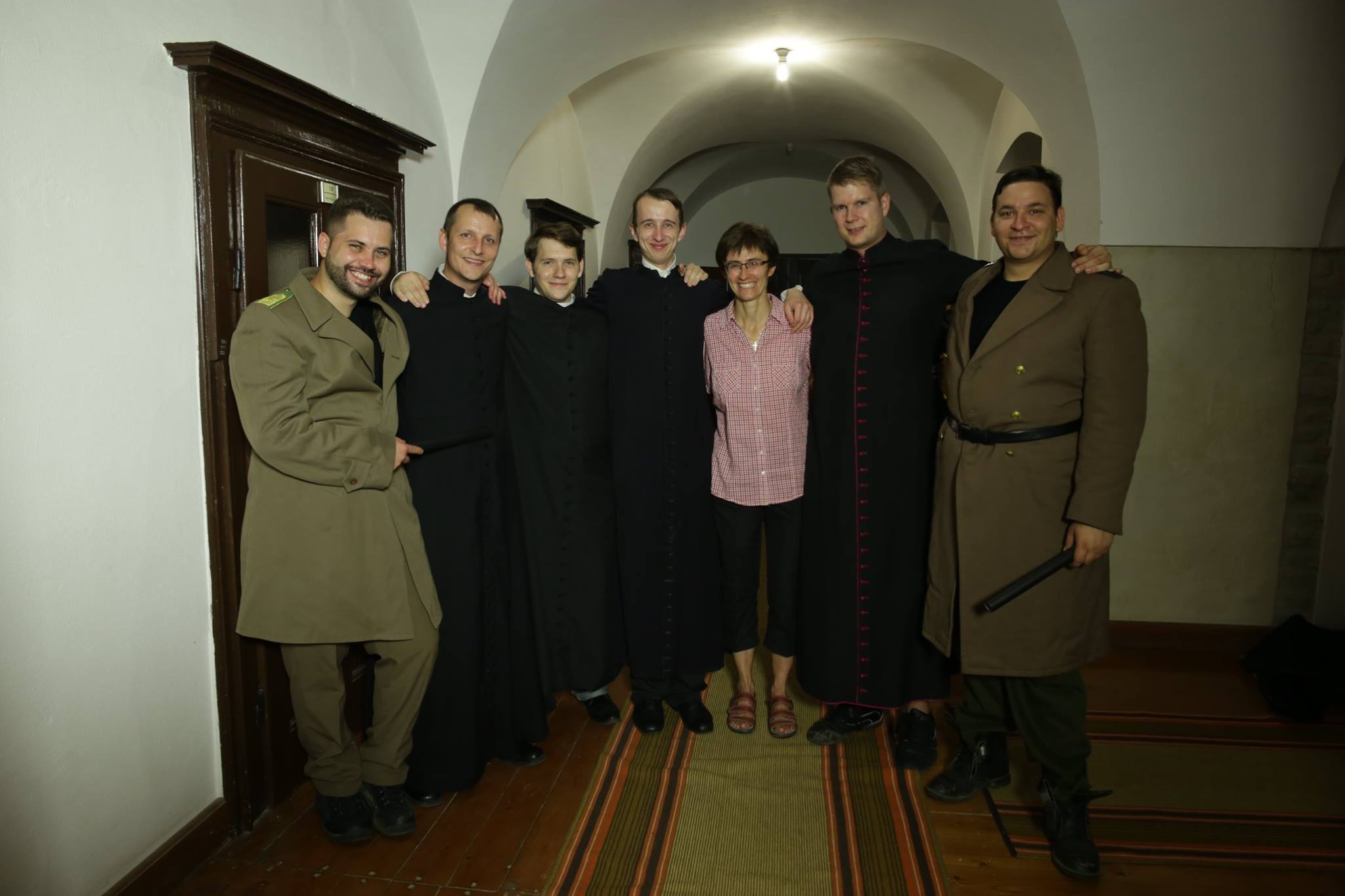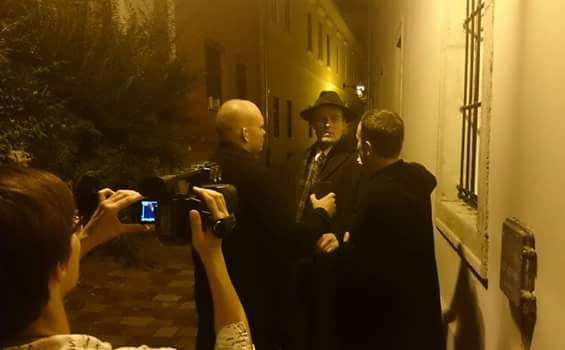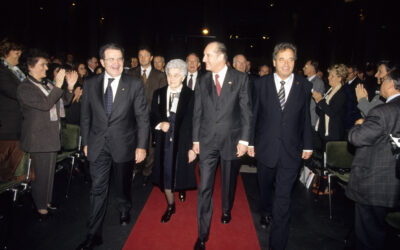
Guido Mirti (Cengia)
on February 20, 2016, marking the 50th anniversary of the arrival of the Focolare Movement in Asia.
Cengia (Guido Mirti), one of the film’s main characters, arrived in the Philippines in 1966 to help spread the spirituality of unity on the Asian continent.
Border Men is the story of two people and their message of brotherhood, who step beyond the solidly guarded borders that had been established by the Cold War. But it is also the story of the cry of pain of countless persecuted Christians in many Eastern European countries. Finally, it is the story of spirituality – that of the Focolare Movement – which was given by God for the atheistic world as well. One of the story’s main protagonists is
Guido Mirti, an Italian focolarino more commonly known as Cengia.
From 1955 to 1966 (the year of his imprisonment in Prague and subsequent expulsion from the country) he was officially working as a tradesman, travelling to Czchekoslovakia, Hungary and East Germany and forming friendships with Catholic leaders who were being persecuted by the Communist Regime.

Film director, Cinzia Panero, with some of the actors.
T
he documentary will be ready in Italian, German, Slovak and Hungarian by March 2016. It is supported by funding from the European Youth in Action Project, the
New Humanity NGO, the Renovabis Foundation and Aid to the Church in Need.
“The idea of doing this documentary,” film director Cinzia Panero points out, “stemmed from a desire to publicise a fascinating and original part of the
Focolare story and its contribution to the historical processes behind the Iron Curtain. It is part of the project “Bridges in Europe: past and future” that has now produced three documentaries: “Medici della DDR” (The Doctors of East Germany), “YOLO” about the story of Cardinal Miloslav Vlk, and the present film about Cengia. The goal was to offer the new generations an alternative key for understanding: the Gospel message of mutual love applied to all social and historical contexts with amazing results.”
 “While writing and then running the scenes,”
“While writing and then running the scenes,” says the director, “I also got to experience the power of that Love that opened the hearts of many people and institutions to give generously. The thank you list is quite long and will be well documented in the credits at the end of the film. Here, I would only like to mention the 50 actors – both professional and non – who were willing to wear heavy coats, scarves and winter clothing in the sweltering summer heat. Or the absolute availability and careful attention of Swing City Hotel in setting up a camera. We can never forget the costume designers who created and sewed the uniforms of 5 prisoners. But also the 70 people who contributed funds for the filming, equipment, advice and hearty awareness that they were involved in a project that was highlighting values such as giving, loyalty and making brave decisions.
Border Men is a message for all of us: to be people of dialogue no matter where we are. Maria Chiara De Lorenzo See the Official English Trailer: https://www.youtube.com/watch?v=xq0TJEDaEg8 See webside:
border.men.info@gmail.com
 “While writing and then running the scenes,” says the director, “I also got to experience the power of that Love that opened the hearts of many people and institutions to give generously. The thank you list is quite long and will be well documented in the credits at the end of the film. Here, I would only like to mention the 50 actors – both professional and non – who were willing to wear heavy coats, scarves and winter clothing in the sweltering summer heat. Or the absolute availability and careful attention of Swing City Hotel in setting up a camera. We can never forget the costume designers who created and sewed the uniforms of 5 prisoners. But also the 70 people who contributed funds for the filming, equipment, advice and hearty awareness that they were involved in a project that was highlighting values such as giving, loyalty and making brave decisions. Border Men is a message for all of us: to be people of dialogue no matter where we are. Maria Chiara De Lorenzo See the Official English Trailer: https://www.youtube.com/watch?v=xq0TJEDaEg8 See webside: border.men.info@gmail.com
“While writing and then running the scenes,” says the director, “I also got to experience the power of that Love that opened the hearts of many people and institutions to give generously. The thank you list is quite long and will be well documented in the credits at the end of the film. Here, I would only like to mention the 50 actors – both professional and non – who were willing to wear heavy coats, scarves and winter clothing in the sweltering summer heat. Or the absolute availability and careful attention of Swing City Hotel in setting up a camera. We can never forget the costume designers who created and sewed the uniforms of 5 prisoners. But also the 70 people who contributed funds for the filming, equipment, advice and hearty awareness that they were involved in a project that was highlighting values such as giving, loyalty and making brave decisions. Border Men is a message for all of us: to be people of dialogue no matter where we are. Maria Chiara De Lorenzo See the Official English Trailer: https://www.youtube.com/watch?v=xq0TJEDaEg8 See webside: border.men.info@gmail.com






0 Comments